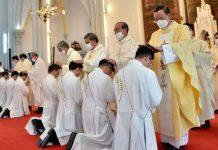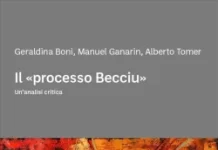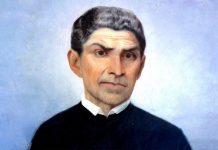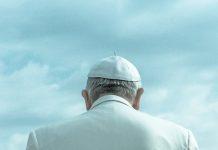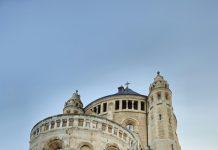On, September 8, the Catholic Church celebrates the feast of the Nativity of Our Lady, exactly nine months after the celebration of the Solemnity of the Immaculate Conception (December 8).
Newsroom (Sept 10, 2021 09:42, Gaudium Press) The Nativity of Mary was celebrated in the Catholic East long before it was instituted in the West. It probably has its origin in Jerusalem, in the middle of the 5th century. It was in Jerusalem that the tradition was kept alive that the Virgin Mary would have been born near the Gate of the Probatic Pool.
On this feast day, the Catholic world admires Our Lady as the dawn that announces the Sun of justice that dispels the darkness of sin. In her, the Church invites us to “contemplate a girl like all the others, and at the same time unique, for she is the ‘blessed among all women’ (Lk 1:42), the Immaculate ‘daughter of Sion’ destined to become the Mother of the Messiah. (John Paul II, Audience of 8/9/2004)
Joy even for the Angels
Joy in the commemorations of the liturgical feast of the birth of Our Lady is justifiably encouraged to everyone, even the angels: “Let the Patriarchs of the Old Testament rejoice, for in Mary they recognized the figure of the Mother of the Messiah. They and the righteous of the Old Law had been waiting for centuries to be admitted into the heavenly glory by the application in Faith of the merits of Christ, the blessed fruit of the Virgin Mary.
“Let all men rejoice because the Virgin Birth has heralded the dawn of the great day of liberation to which all people aspire. Let all the angels rejoice because on this day they have been given for the first time the occasion to reverence their future Queen.” (Lehmann, P. JB. In the Perpetual Light, 1959 p.268)
Only in Heaven was there a Feast
Although Mary is the “beautiful and glorious Virgin” whom God loved with predilection from all eternity, from all creation as his masterpiece, enriched with the most sublime graces and raised to the exalted dignity of Mother of God, (Patriarch Photius, Homily on the Nativity, PG 43) visibly, no extraordinary events accompanied Mary’s birth.
The Gospels say nothing about her nativity. No accounts of prophecy, nor apparitions of angels, nor extraordinary signs are narrated by the Evangelists. Only in Heaven was there a Feast, as the Son of God sees his Mother born.
Mary, holy from the first instant of her life
The Saints and other authoritative authors have expressed this doctrine in various ways. In one of his sweeping sermons dedicated to Our Lady, St. Thomas of Villanueva teaches: “It was necessary that the Mother of God should also be most pure, without stain, without sin.
And so, not only as a maiden, but as a girl, she was most holy, and most holy in her mother’s womb, and most holy at her conception. For it was not fitting that the sanctuary of God, the mansion of Wisdom, the reliquary of the Holy Spirit, the urn of the celestial manna, should have in itself the least blemish.
Therefore, before receiving that most holy soul, the flesh was completely purified even from the residue of every stain, and so, when the soul was infused, it neither inherited nor contracted by the flesh any stain of sin, as it is written: “It fixed its habitation in peace” (Ps. LXXV, 3). That is, the mansion of divine Wisdom was built without the inclination to sin. (EPC)




